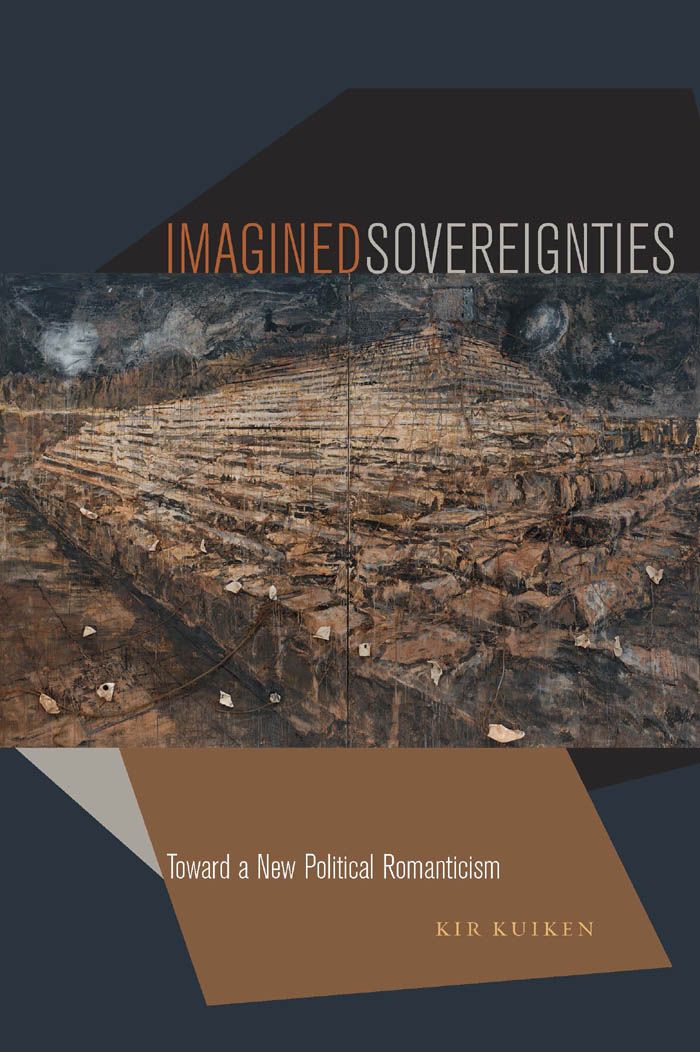Imagined Sovereignties
Toward a New Political Romanticism

This book can be opened with

Imagined Sovereignties argues that the Romantics reconceived not just the nature of aesthetic imagination but also the conditions in which a specific form of political sovereignty could be realized through it.
Articulating the link between the poetic imagination and secularized sovereignty requires more than simply replacing God with the subjective imagination and thereby ratifying the bourgeois liberal subject. Through close readings of Blake, Coleridge, Wordsworth, and Shelley, the author elucidates how Romanticism’s reassertion of poetic power in place of the divine sovereign articulates an alternative understanding of secularization in forms of sovereignty that are no longer modeled on transcendence, divine or human.
These readings ask us to reexamine not only the political significance of Romanticism but also its place within the development of modern politics. Certain aspects of Romanticism still provide an important resource for rethinking the limits of the political in our own time. This book will be a crucial source for those interested in the political legacy of Romanticism, as well as for anyone concerned with critical theoretical approaches to politics in the present.
Imagined Sovereignties has the virtue of recognizing the stunning imbrication of poetry and politics. This is not just another story about aesthetic ideology. Rather, it is a rich and well-researched reflection on the inextricable relation between a political concept (sovereignty) and a poetic practice (imagination) and an argument for the central importance of this relation to our thinking about romanticisms past and present.
From the outset, with its brilliant account of how “Romanticism . . . bears witness to a sovereignty that ceases to be itself the moment it is created,” the argument of Imagined Sovereignties is elaborated in disarmingly clear, precise, and always rigorously developed terms that will do nothing less than shift the ground of the debate around history and politics in Romanticism.
“This book contributes powerfully to our understanding of the afterlife of sovereignty in the modern world. By way of remarkably original interpretations of major texts by Blake, Coleridge, Wordsworth and Shelley, Kuiken teaches us to understand the Romantic imagination as a reinvention of the concept of the political. Routing the paradox of secular political sovereignty through the imagination, these poets not only underscored the crisis of modern sovereignty, but discovered in that crisis the possibility of moving beyond political theology and imagining new forms of authority and collective identity.”

